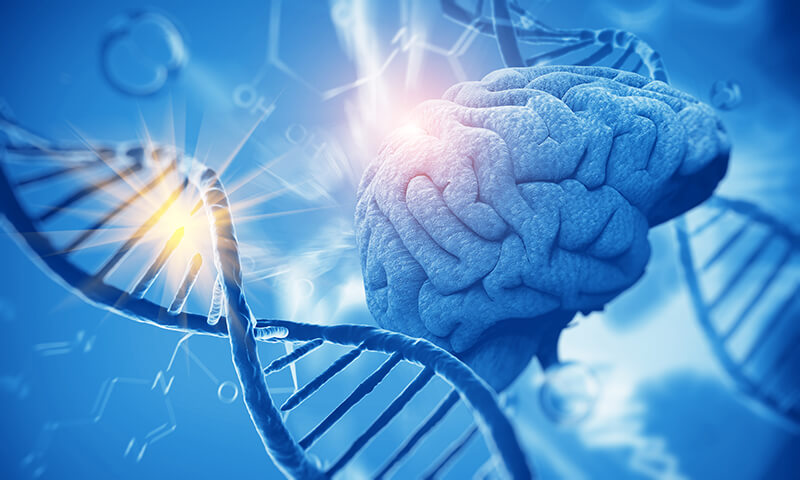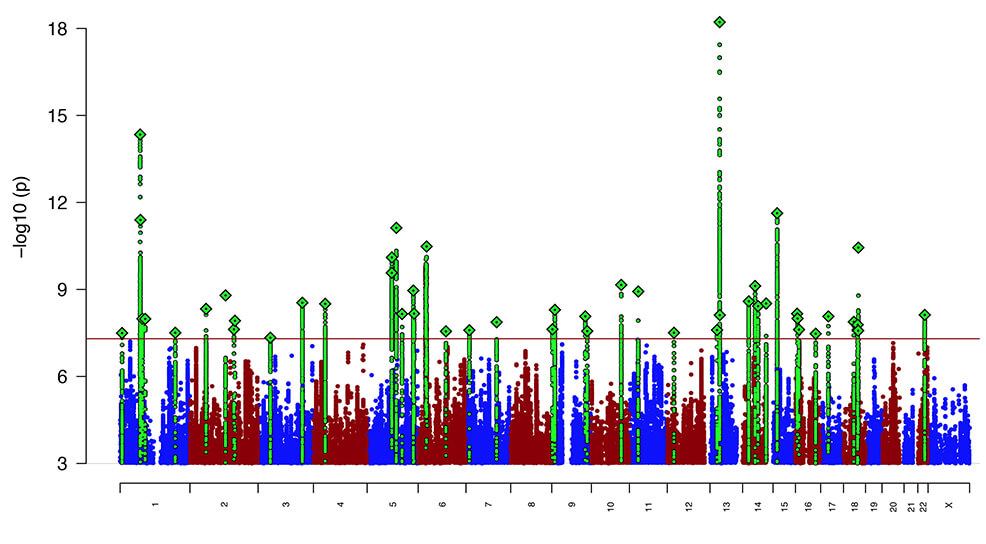
30th April 2018 Scientists discover genes linked to depression An unprecedented global effort by over 200 researchers has identified 44 gene variants linked to increased risk for depression.
A new meta-analysis of 135,000 people with major depression and 345,000 controls has identified 44 genomic variants, or loci, that have a statistically significant association with depression. Of these 44 loci, 30 are newly discovered, while 14 had been identified in previous studies. In addition, the study identified 153 significant genes, and found that major depression shared six loci that are also associated with schizophrenia. “This study is a game-changer,” said Patrick F. Sullivan, MD, Director of the Center for Psychiatric Genomics at the University of North Carolina. “Figuring out the genetic basis of major depression has been really hard. A huge number of researchers across the world collaborated to make this paper, and we now have a deeper look than ever before into the basis of this awful and impairing human malady. With more work, we should be able to develop tools important for treatment and even prevention of major depression.” The results from this multinational study appear in Nature Genetics. “We show that we all carry genetic variants for depression, but those with a higher burden are more susceptible,” said co-author Naomi Wray, PhD, Professorial Research Fellow at the University of Queensland in Australia. “We know that many life experiences also contribute to risk of depression, but identifying the genetic factors opens new doors for research into the biological drivers.” “This pioneering study is incredibly important, for two reasons,” said Josh Gordon, PhD, Director of the U.S. National Institute of Mental Health, who was not involved in the work. “First, it reaffirms the value of large-scale collaborations, particularly in identifying the complex genetics underlying psychiatric illness. Second, it confirms the genetic roots for depression, offering important biological clues that we hope will lead to new and better treatments.”
This “Manhattan plot” shows the locations of the 44 major depression loci on the human genome. The vertical axis shows statistical significance. Everything shown above the red horizontal line is statistically significant. Credit: UNC Health Care
Measured by years of life lost, depression is predicted to overtake heart disease to become the no.1 global disease burden by 2030. This landmark study represents a major step towards understanding the biological underpinnings of depression. The results could be used for improved therapies. The genetic basis of depression was found to overlap with other disorders, such as bipolar disorder and schizophrenia. Intriguingly, the genetic basis of depressive disorder also overlaps with that for obesity and multiple measures of sleep quality, including daytime sleepiness, insomnia and tiredness. “Our eventual aim is to develop improved treatments and also to recommend anti-depressants for individuals, based on their genetic make-up, to avoid the potentially long and distressing process of experimenting to find the correct medicine and dosage,” said co-author Professor Nick Martin, from Brisbane’s QIMR Berghofer Medical Research Institute.
Comments »
If you enjoyed this article, please consider sharing it:
|








